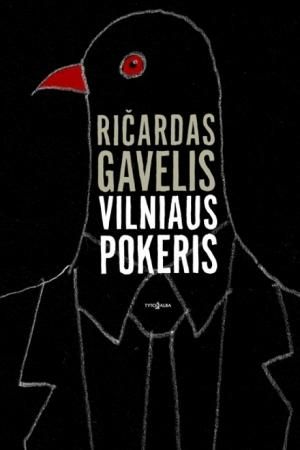Vilnius Poker

Published: 2016
ISBN: 9789986161776
Number of pages: 526
Cover: Hardback
Publisher: UAB Tyto alba
Ričardas Gavelis (1950-2002). The novel „Vilnius Poker“ deconstructs the suppressive mechanism of the totalitarian system, removes the mask of the Homo Sovieticus and in a shocking way reveals the decay of the human soul. The novel is constructed like literary „poker“: its players, four characters, tell the tragic story from their perspective.
An assemblage of troubled grotesques struggle to retain identity and humanity in an alternately menacing and mysterious Vilnius, the Lithuanian capital, under Soviet rule in the 1970s and 1980s. The main characters are Vytautas Vargalys, a semi-justifiably paranoid labor camp survivor who works at a library no one visits while he desperately investigates the Them or They responsible for dehumanizing and killing the humans around him, including his wife, Irena; his genius friend, Gedis; and the young siren, Lolita detailing a man's mental breakdown—and his obsession with a seductress named Lolita, the omnipresent "them," and the need to uncover what's "really going on"—Vilnius Poker is an epic, paranoid novel about the surreal absurdities and horrors of life under Soviet rule. In the words of Kirkus Reviews, "think of it as The Matrix behind the Iron Curtain—unsettling and profoundly interesting."
By turns lyrical, philosophical and deeply shockingly, Vilnius Poker is often referred to as „the turning point in Lithuanian literature“ and earned Gavelis a reputation as Lithuania‘s greatest novelist.
Translated into English, French.
Publisher
J. Jasinskio g. 10, 01112 Vilnius
Tel.: (8 5) 263 6382
Fax.: (8 5) 249 8602
Email: info@tytoalba.lt
Rights
Rights already sold
France, United Kingdom of Great Britain and Northern Ireland
